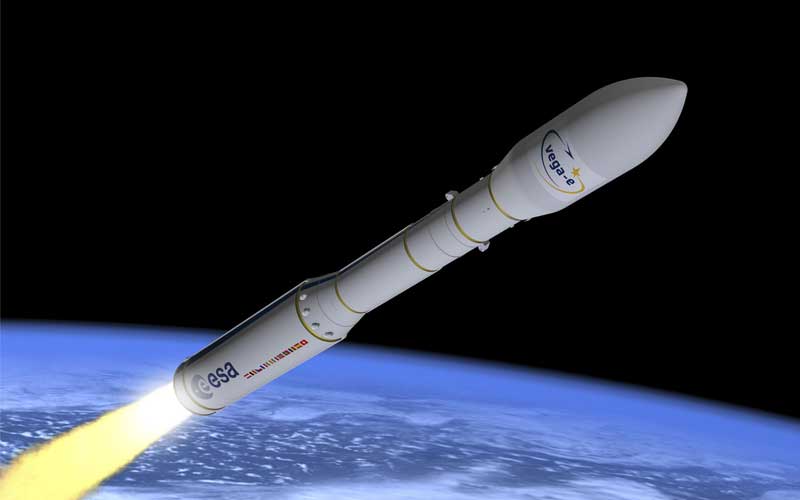
ESA Director of Space Transportation Toni Tolker-Nielsen has revealed that ESA expects to award a new contract to Avio for the development of Vega E before the end of 2024. Tolker-Nielsen made the comments during a media briefing for the Vega C return-to-flight mission, which is expected to be launched on 4 December.
Vega E is a three-stage rocket that will retain the first and second stages of the Vega C, a mid-life Vega C upgrade that features the larger solid-fuel P160 first stage. The Vega C solid-fuel Zefiro 9 third stage and liquid-fuel AVUM upper stage will be replaced by a single liquid-fuel stage powered by Avio’s MR10 rocket engine. Vega E will have a payload capacity of three tonnes and is expected to be launched for the first time in 2027.
Preparations for what would later become Vega E began in 2004, eight years before the original Vega rocket’s inaugural flight. An initial feasibility study proposed a three-stage rocket called Lyra, designed to enhance Vega’s performance while reducing costs. The development of the MR10 engine, which will power the Vega E upper stage, began in 2007. Until this point, all efforts to prepare for Vega E had been driven by the Italian space agency, ASI.
At the 2014 ESA ministerial council meeting, member states made the decision to move ahead with an intermediate upgrade called Vega C to enable the agency to meet a medium-term demand for recurrent launches driven by “an increasing number of European institutional payloads.” The move also allowed ESA to distribute the costs of Ariane 6, with the P120C booster being introduced as a common element across both rockets.
In August 2015, ESA signed the first development contract for Vega C, awarding €395 million in funding. At the time, the rocket was expected to complete an inaugural flight in 2018.
In 2017, ESA began to push the development of Vega E with a €53 million award to jumpstart the development of the new rocket. At the time, the debut of Vega C had slipped to 2019, while Vega E was projected to launch for the first time in 2024.
The most recent Vega E contract was signed in July 2021, with Avio receiving an additional €118.8 million in funding to develop the rocket. This funding was utilized for what Avio described as the second phase of the rocket’s development.
According to Avio’s half-year 2024 financial report, funding for the completion of Vega E development was approved at the ESA ministerial council meeting in Paris in November 2022. With the signing of a new contract in December, ESA will likely award the remainder of the funding required to complete the development of Vega E.

